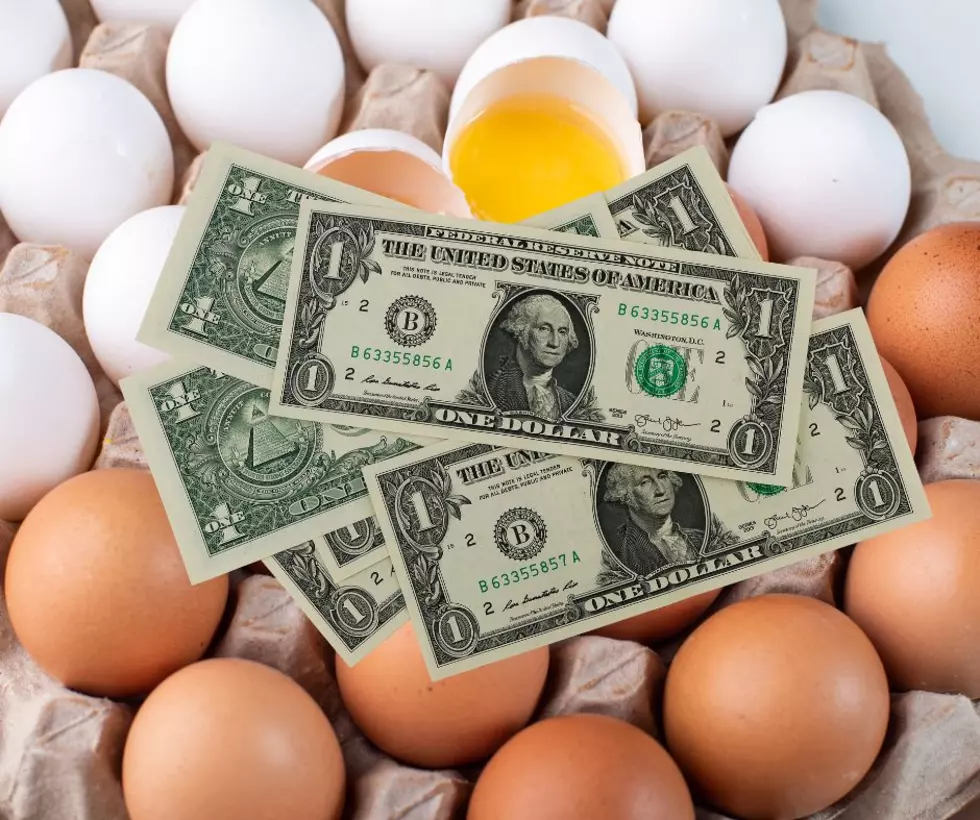Warren and Porter Demand Answers From Big Egg Over 'Massive Spike' in Prices
JAKE JOHNSON for Common Dreams
Sen. Elizabeth Warren and Rep. Katie Porter on Thursday demanded answers from the five largest egg producers in the United States over recent price surges that companies have blamed on an avian flu outbreak—a narrative that advocates view as an effort to distract attention from rampant profiteering in the industry.
Warren
(D-Mass.) and Porter (D-Calif.) invoked that criticism in letters to Rose
Acre Farms, Cal-Maine Foods, Hillandale Farms, Versova Management, and Daybreak
Foods, writing that they are concerned by the "massive spike" in
prices and "the extent to which egg producers may be using fears about
avian flu and supply shocks as a cover to pad their own profits at the expense
of American families."
"American families working to put food on the table deserve to know whether the increased prices they are paying for eggs represent a legitimate response to reduced supply or out-of-control corporate greed," the lawmakers wrote. "Although wholesale prices have decreased, consumers are still waiting for relief at the grocery checkout, which could take several more weeks."
Bureau
of Labor Statistics data shows that
the average price for a carton of a dozen large Grade A eggs was $4.80 in
January, up from $1.93 a year earlier. Consumers in some states have been paying more than
$7 per carton in recent weeks.
To
explain the price surge—which has been eyebrow-raising even amid elevated
inflation throughout the U.S. economy—egg-producing companies have pointed to a
large avian flu outbreak that has impacted an estimated 58 million birds,
including around 43 million egg-laying chickens.
But
the advocacy group Farm Action has argued that the industry's explanations
"don't stand up to the facts."
"Cal-Maine's
net average selling price for a dozen conventional eggs increased by 150.5%
from a year ago," the group observed last
month. "The average size of egg-laying flocks never dropped more
than six to eight percent lower than
it was a year prior. Moreover, the effect of the loss of egg-laying hens on
production was itself blunted by 'record-high' lay rates throughout
the year."
"And
there's one other critical piece missing from this industry
narrative—Cal-Maine, which controls 20% of
the egg market, hasn't reported a single case of
avian flu at any of its facilities," Farm Action added.
In
a recent letter to Federal Trade Commission Chair Lina Khan, Farm Action
demanded an investigation into the highly concentrated industry, noting that
top companies such as Cal-Maine "have a history of engaging in
'cartelistic conspiracies' to limit production, split markets, and increase
prices for consumers."
Warren
and Porter spotlighted Farm Action's work in their letter Thursday, decrying
industry practices as "a pattern we've seen too often since the Covid-19
pandemic: companies jacking up their prices to pad their own profits, putting
an additional burden on American families and the economy as a whole."
"Cal-Maine
Foods, which controls approximately 20% of the retail egg market, was reporting
record profit margins and no positive avian flu cases on any of its
farms," the lawmakers wrote. "In December, Cal-Maine Foods reported a
gross profits increase of more than 600% over the same quarter in 2021, which
the company claimed was 'driven by record average conventional egg selling
price."
The
two progressive Democrats asked the egg giants to promptly answer a series of
specific questions, including, "To what extent has your company met or
exceeded quarterly profit margin goals during the 2022 avian flu
outbreak?"
The
lawmakers also asked whether the companies' "executives, officials, or any
other affiliated individuals" had "any direct or indirect
communication with other egg producers about production or prices for
eggs?"
"Given
corporations' rampant profiteering during the Covid-19 pandemic and the ensuing
economic crisis, and the egg industry's history of anticompetitive
practices," Warren and Porter wrote, "[we] ask that you provide
transparency about the rationale for the increase in egg prices and the
financial impact on your company."
